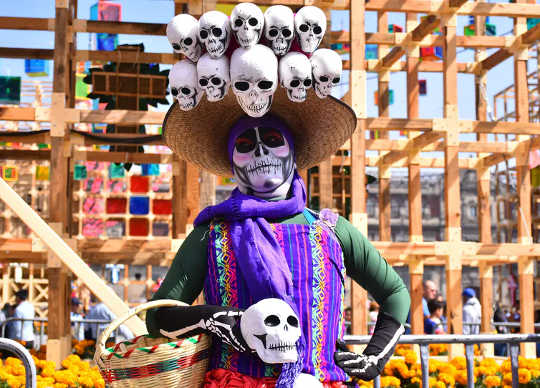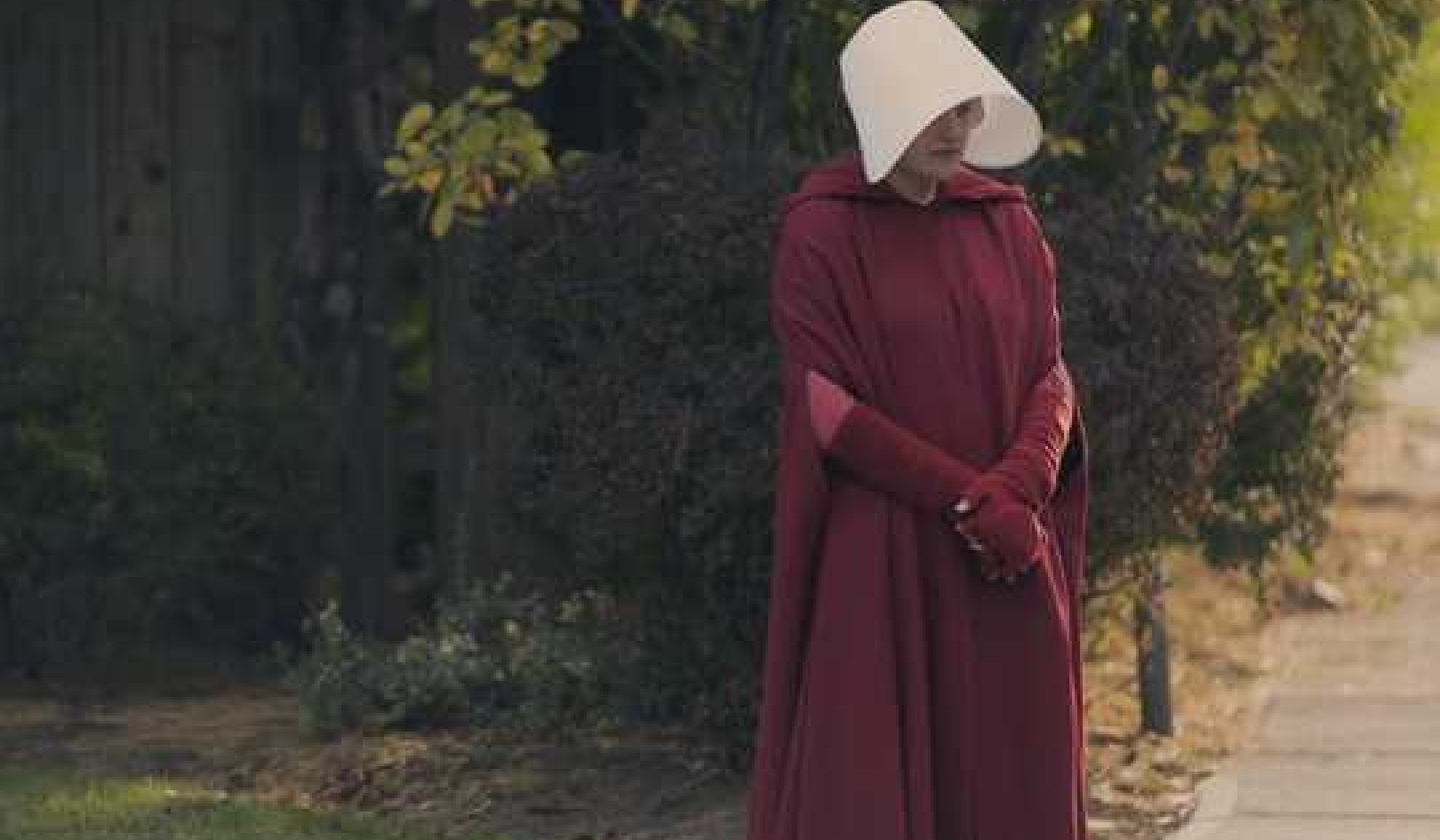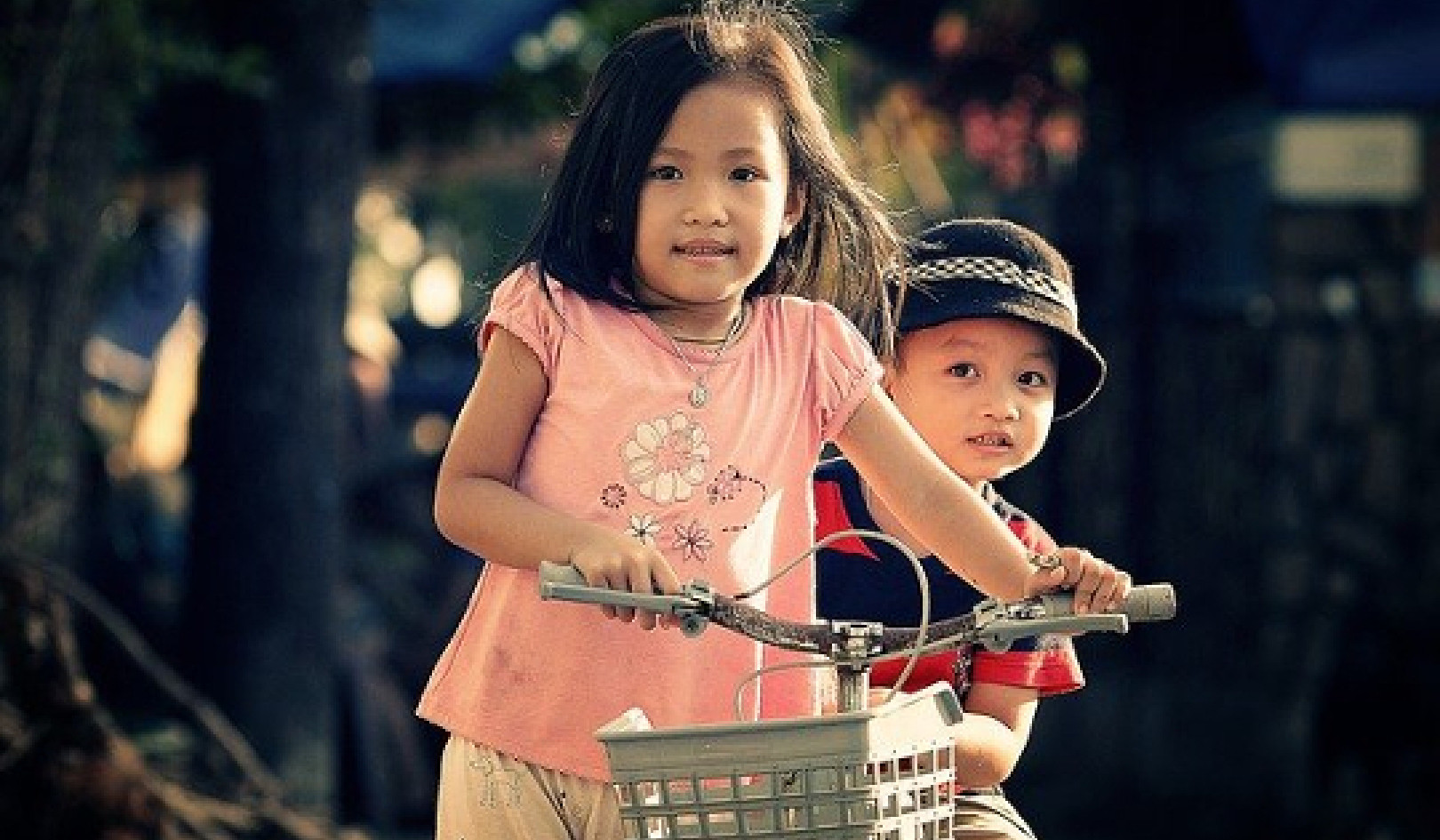 For the Aztecs, Day of the Dead rituals helped people find balance in their personal lives and social ties. Eyepix/NurPhoto via Getty Images
For the Aztecs, Day of the Dead rituals helped people find balance in their personal lives and social ties. Eyepix/NurPhoto via Getty Images
Growing up in the United States, I remember on Halloween my mother used to say, “Honey, this is not just a day for costumes and candy. You must also remember your relatives. Know their names.” She would show me pictures of great-aunts, uncles and other deceased relatives.
Meanwhile, my family members in Mexico observed Day of the Dead, a national holiday that is celebrated from Oct. 31 to Nov. 2. They would build small altars at home to honor their loved ones, and put food, drinks, photos and other personal items on them. They similarly decorated their ancestors’ graves.
These days, I am part of a small group of researchers who are working to recover Aztec philosophy. My focus is on Aztec ethics, which the Aztecs thought of as the art of living well, but we call the pursuit of happiness.
I’ve learned that Day of the Dead rituals, which date back to Mexico’s pre-Columbian peoples and are observed all over the Americas, are deeply rooted in Aztec ethics.
A brief introduction to Aztec philosophy
Shortly after Christopher Columbus arrived in the Caribbean in 1492, Spanish people colonized the region. In 1521 the Aztec empire fell in a two-year war led by the Spaniard Hernán Cortés.
Afterwards, Spanish priests wanted to understand the native population in order to convert them to Christianity. They painstakingly detailed the Aztecs’ beliefs in volumes of material written in Nahuatl, the Aztec language. The most important of these sources is the “Florentine Codex,” written between 1547 and 1577.
The basic problem of life for the Aztecs, according to these sources, is that humans aren’t perfect – they make mistakes. “The earth is slippery, slick,” the Aztecs would say. And to avoid falling into error, people need to live a balanced life on three different levels: in their psyches, their bodies and their society.
The top individual goal in Aztec ethics, then, is for people to balance their psyche. It is done by aligning the heart, or yollotl, and face, or ixtli. By “heart,” the Aztecs meant thoughts and desires. By “face,” they meant the rational organization of those desires.
Where Day of the Dead fits in
For the Aztecs, then, a happy life is achieved through balance. Individually, this means balancing one’s “face” and “heart,” but socially this involves friends, family and ancestors. Day of the Dead rituals help with this social balance.
It’s important to note that the “heart” is a metaphor for all of the body’s desires. Also, the Aztecs did not distinguish minds from bodies. They believed each region of the body had its own “mind.” For example, our eyes think one way, our ears another, and our skin another way still. As the scholar Alfredo Lopéz Austin argues, the Aztecs thought of consciousness as the result of this ecosystem of minds, with each mind competing for attention and expressing its own desires.
Within this ecosystem of minds, the Aztecs believed that three regions held the highest concentration of the cosmic forces that make humans living, moving beings: the heart (the physical heart, in this case), the head and the liver.
The heart houses the “yolia,” which expresses one’s conscious and remembered personality. The head houses the “tonalli,” which expresses the strength of one’s character and destiny. And the liver houses the “ihiyotl,” which is responsible for our breathing and health.
When we die, the Aztecs believed these three powers separate from our bodies. The ihiyotl, or breath, immediately rejoins nature. The tonalli, or vital strength, returns as energy to be called on in need. One’s yolia. or personality, however, travels to the land of the dead, called Mictlán. There, it endures a series of trials, including hunger and cold winds.
To help in the journey, each person’s yolia is accompanied by a little yellow dog and whatever offerings one’s loved ones make. That’s why on various days of the year – not only during Day of the Dead – family members are supposed to help the yolia of recently deceased relatives by offering them food, drink and other gifts at their home shrines.
But after four years, the yolia finishes its journey and rejoins the fundamental energy of the universe – “ometeotl,” or god. All that remains of the deceased, then, is their force of personality as tonalli, which, the Aztecs believed, could be called on by remembering their name.
By remembering our ancestors, Aztecs thought, we help balance our lives while we’re here on Earth and also support our loves ones in their afterlife. This, in essence, is the purpose of the Day of the Dead that many observe today.![]()
About The Author
Lynn Sebastian Purcell, Associate Professor of Philosophy, State University of New York College at Cortland
This article is republished from The Conversation under a Creative Commons license. Read the original article.

Related Books:
The Four Agreements: A Practical Guide to Personal Freedom (A Toltec Wisdom Book)
by Don Miguel Ruiz
This book offers a guide to personal freedom and happiness, drawing on ancient Toltec wisdom and spiritual principles.
Click for more info or to order
The Untethered Soul: The Journey Beyond Yourself
by Michael A. Singer
This book offers a guide to spiritual growth and happiness, drawing on mindfulness practices and insights from Eastern and Western spiritual traditions.
Click for more info or to order
The Gifts of Imperfection: Let Go of Who You Think You're Supposed to Be and Embrace Who You Are
by Brené Brown
This book offers a guide to self-acceptance and happiness, drawing on personal experiences, research, and insights from social psychology and spirituality.
Click for more info or to order
The Subtle Art of Not Giving a F*ck: A Counterintuitive Approach to Living a Good Life
by Mark Manson
This book offers a refreshing and humorous approach to happiness, emphasizing the importance of accepting and embracing life's inevitable challenges and uncertainties.
Click for more info or to order
The Happiness Advantage: How a Positive Brain Fuels Success in Work and Life
by Shawn Achor
This book offers a guide to happiness and success, drawing on scientific research and practical strategies for cultivating a positive mindset and behavior.






















